rain: a type of precipitation that is common in Vancouver from September to May, but is not acknowledged by Vancouverites. Ex.: a non-Vancouverite needs protection from this type of precipitation, such as an umbrella or raincoat, but Vancouverites rarely need these.
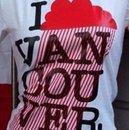
snow: a type of precipitation that rarely occurs in Vancouver but is uniformly acknowledged by Vancouverites, as it causes all traffic to cease. A very cold, dense mix of ice and water falling to the ground in clumps, occasionally persisting for 20 minutes before melting.
suckerhole: a patch of clear blue sky that often appears about an hour before sundown on a rainy day, tricking you into believing the next day might be sunny. Often occurs within a 7-to-10-day stretch of rain.
summer: var. a. a season that lasts from July to August, with clear skies and temperatures in the mid-20s. Rain persists until the end of June, when the skies begin to clear, only to cloud over again by Labour Day. Occurs for two out of three years, often following a relatively dry winter. var. b. a season that lasts from May to September, with clear skies and temperatures in the mid-20s, with a week or two in the high 20s. Little rain. Occurs about once in three years, often following a very wet winter.
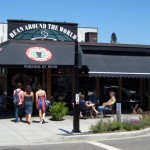
Grouse Grind: not, as the Granville Island lager ads confirm, a dirty dance move, but a hike up Grouse Mountain deemed necessary for outdoor enthusiasts. The vast majority of the “trail” is paved and involves steep stairs; despite this it has a cult following. Cult followers get a time stamp at the bottom of the Grind and compete for the shortest time.
Kitsilano: alternately considered one of Vancouver’s most/least popular neighbourhoods, formerly housing hippies and now home to some of the most expensive real estate in the country. Kits culture includes yoga studios, dog walkers, coffee houses and strident environmentalists, which tends mask to mask the neighbourhood’s unique history and geography.
Commercial Drive: the last bastion of “working class” Vancouver, with a mix of shops, services, and interesting industrial land uses that predate the current Starbucks trend. That’s all Vancouverites want you to know about it. Anything else and you might want to move there…and you just don’t understand the unique culture, history and geography of the Drive.
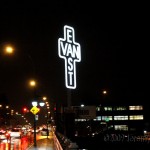
East Vancouver: alternately considered one of the most/least popular neighbourhoods in Vancouver, with strong working class roots and humble dwellings, until recently quite affordable. Very stable, long-term community activists and vocal residents have led to a sort defensive stance about the community, a sort of “reverse snobbery” mostly directed to Westsiders who can’t possibly understand their neighbourhood, its unique history and geography.
Main Street: a formerly working class neighbourhood, now a hipster hangout with high-end, though independent, stores and restaurants. Socially-aware student types mix with a range of independent activist types, creating a unique culture, history and geography.
hipster: a middle- to upper-class individual who deeply identifies with the working class. Generally prefers to dress in second-hand clothing, currently with a heavy dose of retro 80s such as mullets, large clear plastic frame glasses, skinny jeans and plaid shirts. Musical taste features obscure local bands as well as well-known, but commercially less successful, Canadian bands. Interest in documentary films, bicycling, and pot culture required. Hipsters gravitate to Main Street, East Van and the Drive, having been largely displaced from Kits, Dunbar and Kerrisdale.
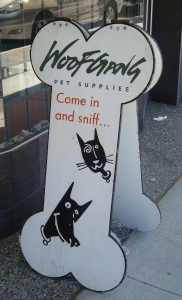
lifestyle: a melange of outdoor activities, beautiful scenery, mild climate, yoga, healthy eating, beach activities, self-righteous political and social advocacy, which is being threatened by outsiders moving to Vancouver. Syn. granola. Adj. livable: laid-back, scenic, with access to beaches, various outdoor activities, high-end condo living, and gourmet cuisine, but only for the wealthy.
fur babies: usually refers to dogs and cats who are kept as household pets and treated as the family’s children. A number of shops and services reinforce this image.
coffee shop: a small, independently-owned enterprise that supplies fair-trade coffee, a variety of herbal teas, and homemade treats, frequented by locals. Ant. Starbucks.
affordable housing: a form of shelter that is extremely rare in Vancouver, but is peppered throughout certain neighbourhoods and in adjacent municipalities such as Port Coquitlam and Surrey. Ant. most housing in Vancouver.
fleece: refers to both a fabric and a garment (usually a zippered jacket) that can be worn in any weather, any season, and on any social occasion. Usually worn with jeans, fleece is typically forest green or navy in colour with a prominent logo (eg. Columbia, North Face) on the front placket. 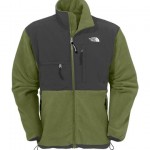
casual dress: typically jeans and a fleece (winter months) or khakis and a T-shirt (summer months). Hiking shoes or rubber sandals, often with velcro closures, complete the look. For women, yoga pants and tank tops, as well as capri pants, are common variants. Worn on all but semi-formal occasions, approximately 362 days of the year. Retail options: Mountain Equipment Co-Op, North Face, Lululemon.
semi-formal dress: a rare requirement in Vancouver, consisting of long-sleeved shirts and jeans or khakis (for men). Ties are not acceptable, nor is a jacket. For women, a skirt and a T-shirt with sandals, or occasionally low heels. Retail options: Spank, Aritsia. Ant. Dresses, especially long dresses or those made from silk, satin, or velvet.
great value for food: euphemism for some of the most overpriced food in Canada. Vancouver has many exclusive, gourmet restaurants, a smaller number of middle-range restaurants, and very little at the affordable end. Poor service can persist even to the high end. Similarly, grocery stores are uniformly overpriced, although some deals can be had at the smaller green grocers and in Chinatown.
Expo ’86: an international transportation fair held just after the worst recession in BC history (1981-83), which led to Vancouver’s rapid growth and development. Widely credited with being the best and worst thing to ever happen to the city.
2010 Olympics: an international sporting event discredited by most native Vancouverites, many of whom vacated the city for the 10-day period, leaving the Games to be celebrated by national and international tourists. Although locals disparaged the event, they did not lose a second in renting out apartments and condos to tourists at exorbitant rates.
11:00 pm: last call for bar patios on many of Vancouver’s main streets, except the bar-laden three-block section of Granville downtown. Time for bed so you can get up early for that hike tomorrow morning!
Toronto: Yoko to Vancouver’s Beatles, ie. the source of all discord in Lotusland. Some Torontonians have moved to Vancouver and infected it with their urban, workaholic, corporate vibe.
Ontario: Toronto.
Canada Day: a holiday largely celebrated by tourists in Vancouver.
